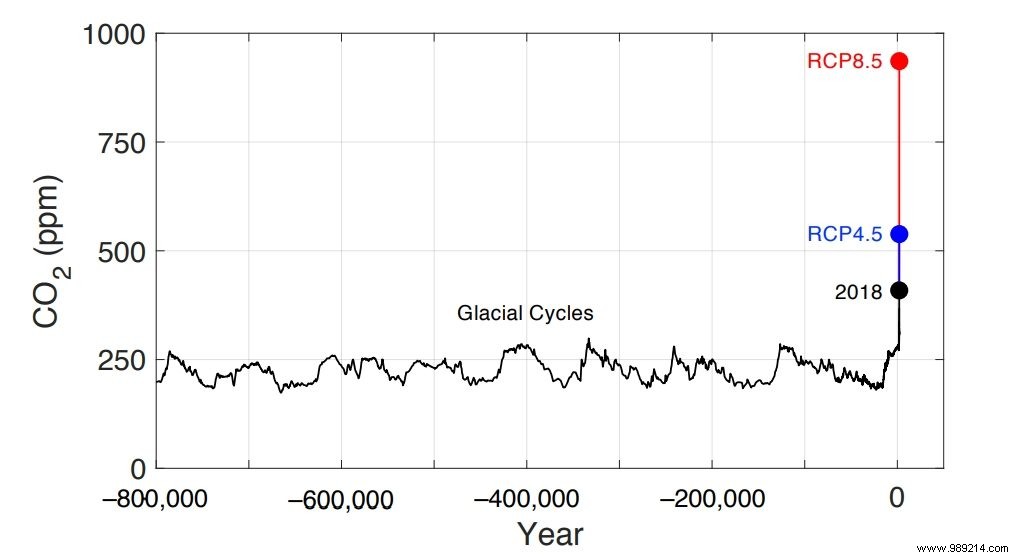The rapid increase in CO2 levels in the air threatens to severely degrade the cognitive abilities of students in classrooms. Results recently presented at the American Geophysical Union Meeting and who prolong those obtained by previous work. In particular, they invite us to take a more serious interest in this direct effect of CO2 in view of the current rising context.
When we talk about the increase in the carbon dioxide (CO2) content of the atmosphere, the reflex is to give priority to considering the impacts on the climate . Indeed, CO2 is a greenhouse gas. Also, any increase in its concentration tends to induce global warming . Warming that profoundly reorganizes the flows of matter and energy in the system. Hence the answer that is sometimes complex and difficult to pin down.
These various alterations cause concern because they threaten the property, stability and even the survival of human populations. Among other things, we can cite the multiplication of intense heat waves, the aggravation of episodes of drought, heavy rains or even the increase in marine flooding due to the rise in sea level. These are well-known threats . However, they represent indirect effects of CO2 on human populations.
But CO2 also operates frontally . For example, with regard to ocean acidification. Another direct effect that is much less talked about is the impact on human health . After all, Homo Sapiens never lived with such high CO2 levels. We can therefore suspect possible influences on its metabolism.

However, research has shown that when the amount of carbon dioxide increases in the blood (hypercapnia), that of oxygen decreases (hypoxemia). As a result, a reduction in cerebral excitability is observed. In addition, blood richer in CO2 is more acidic. For these reasons, hypertension, confusion, drowsiness and anxiety are favored in an atmosphere rich in carbon dioxide.
The studies dedicated to this theme have systematically been carried out in indoor conditions . Namely, how the CO2 content of a room could alter human metabolism. Indeed, we know that a group of people breathing for several hours in the same room can lead to a CO2 rate exceeding 1000 to 2000 ppm if no fresh air is supplied. Results that have outlets in terms of building engineering. However, the connection with the community of climatologists has remained anecdotal.
Yet with the contemporary increase in carbon dioxide, the outside air is less able to ventilate rooms. Even when the windows are fully open. It is therefore necessary to estimate to what extent this evolution affects the cognitive functions of human groups in indoor conditions.
A work that was recently carried out by a team of scientists from the universities of Colorado and Pennsylvania. The experiment was based onan analytical model applied to the case of elementary school classrooms . Two scenarios were explored. In one, the global concentration of CO2 tends to stabilize by the end of the century. In the other, it continues to increase.

The results show that in the first case, some cognitive abilities of students are decreased by 25% by 2100 . In the second, they are reduced by 50% . The least we can say is that the figures are very worrying. Especially when you know that they represent an average value.
“We conclude that indoor CO2 levels may indeed reach values detrimental to cognitive abilities by the end of this century , and the best way to prevent this insidious consequence of climate change is to reduce emissions from fossil fuels,” we read in the summary of the study.
In sum, the direct impact of CO2 in the context of current environmental changes will have to be considered more seriously . Especially since future research is necessary because all the modalities of these influences are not yet well understood.
Finally, it goes without saying that if a systematic degradation of cognitive functions were to become widespread, the situation would be very worrying. Thus, it is necessary to anticipate today the different possible scenarios . And consider the means to protect ourselves if we do not succeed in limiting our greenhouse gas emissions.
Related articles: